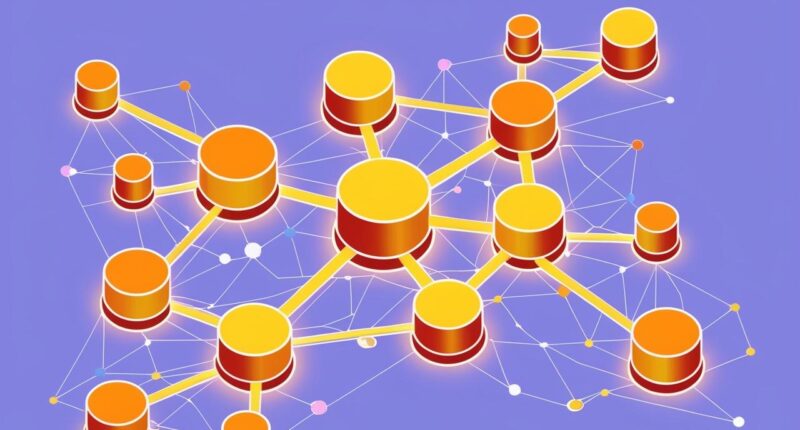Decentralization in cryptocurrency signifies the distribution of control across a network, negating the need for a central authority to manage transactions. This structure allows for peer-to-peer interactions, with security guaranteed through blockchain technology. Multiple participants validate transactions through consensus mechanisms, reducing risks of censorship or manipulation. Additionally, users enjoy lower transaction fees and enhanced privacy. Understanding decentralization opens up insights into the functionalities and benefits of various cryptocurrencies available today.

Decentralization in cryptocurrency represents a fundamental shift in how digital transactions are conducted, moving away from traditional, centralized systems. In a decentralized network, there is no single authority controlling the operations. Instead, power is distributed across multiple participants, allowing users to engage in peer-to-peer transactions without intermediaries. This structure promotes consensus-based decision-making, which enhances the network’s resilience by eliminating single points of failure.
Decentralization transforms digital transactions, empowering users through peer-to-peer interactions and enhancing network resilience.
The backbone of decentralized cryptocurrencies is blockchain technology, which acts as a distributed ledger. This ledger is secured through cryptographic measures, ensuring that transactions remain safe and tamper-proof. Different consensus mechanisms, such as Proof of Work and Proof of Stake, facilitate the validation of transactions, while open-source code allows for transparency and community involvement. Additionally, blockchain’s distributed ledger technology allows for secure and verifiable record-keeping across the network. Governance models are also decentralized, giving users a say in the network’s direction. Physical Decentralization is crucial as it distributes servers globally to avoid control by a single entity. Additionally, the use of decentralized blockchains ensures that no single point of failure exists, enhancing the overall security and integrity of the network.
Decentralization brings several benefits to cryptocurrency users. Security is strengthened through a distributed network, which makes it difficult for malicious actors to compromise the system. Additionally, the risk of censorship or manipulation is reduced, as no single entity has control. Lower transaction fees make cryptocurrency more accessible, while the potential for greater financial inclusion allows individuals in underserved regions to participate in the global economy. Enhanced privacy and anonymity are also significant advantages, giving users more control over their personal information.
However, challenges exist within decentralized systems. Scalability issues can lead to slower transaction speeds, and energy consumption, particularly with Proof of Work, raises concerns about sustainability. Regulatory uncertainties can create a difficult environment for users, and there is a potential risk of 51% attacks, where a single entity gains control over the majority of the network. Users are also responsible for managing their own keys, which can be intimidating for those unfamiliar with the technology.
Examples of decentralized cryptocurrencies include Bitcoin, Ethereum, and Monero, each offering unique features and benefits.
Frequently Asked Questions
What Are the Advantages of Using Decentralized Cryptocurrencies?
Decentralized cryptocurrencies offer several advantages.
They enhance security and privacy through cryptographic protocols, reducing the risk of hacking by eliminating single points of failure. Users control their private keys and assets, promoting ownership.
Transactions occur directly between peers, lowering fees and speeding up settlements. Additionally, decentralized systems increase financial inclusion by providing access to unbanked populations, while their transparency and immutability foster accountability through auditable transaction histories, ensuring trust within the network.
How Does Decentralization Impact Transaction Speed?
Decentralization impacts transaction speed by distributing the workload across multiple nodes, which helps prevent congestion and single points of failure.
However, during peak times, increased activity can still lead to delays.
Different consensus mechanisms influence speed; for instance, Proof-of-Work tends to be slower than Proof-of-Stake.
Additionally, shorter block times can speed up transactions but may compromise security, while longer times enhance security at the cost of speed, requiring careful balance in network design.
Can Decentralized Cryptocurrencies Be Hacked?
Decentralized cryptocurrencies can indeed be hacked, despite their security features. Smaller networks are vulnerable to 51% attacks, where a group gains control and can manipulate transactions.
Additionally, smart contract bugs can be exploited, and private keys may be stolen through phishing scams. Notable hacks, such as the Mt. Gox incident, highlight the risks.
To mitigate these threats, users should employ strong security measures, like multi-signature wallets and regular audits of their digital assets.
Are All Cryptocurrencies Decentralized?
Not all cryptocurrencies are decentralized.
While Bitcoin is widely recognized as the most decentralized option, many others exhibit varying levels of centralization. For instance, Ripple and Tether are controlled by specific entities, limiting their decentralization.
Additionally, some cryptocurrencies, like Ethereum, are working toward increased decentralization but still face challenges, such as centralized staking pools.
How to Choose a Decentralized Cryptocurrency for Investment?
To choose a decentralized cryptocurrency for investment, one should first research the project’s decentralization, including token ownership distribution and node geography.
Next, evaluate technical fundamentals like scalability and consensus mechanisms.
Analyze adoption through user growth and partnerships, and consider market factors such as capitalization and historical performance.
Additionally, review the governance model and the codebase’s open-source status.
This thorough approach helps in making informed investment decisions in decentralized cryptocurrencies.
References
- https://asicmarketplace.com/blog/blockchain-decentralization/
- https://www.investopedia.com/terms/b/blockchain.asp
- https://aws.amazon.com/web3/decentralization-in-blockchain/
- https://www.chiliz.com/what-is-decentralization-in-blockchain/
- https://cmr.berkeley.edu/2024/12/blockchain-technology-and-the-rise-of-decentralized-blockchain-platforms/
- https://ccia.ugr.es/Documentos/tesis_dpto/112.pdf
- https://www.investopedia.com/decentralized-finance-defi-5113835
- https://shardeum.org/blog/what-are-the-types-of-decentralization/
- https://freemanlaw.com/decentralized-governance-mechanisms/
- https://gist.github.com/shekharx/e1c36ed62b119fd30e739ee8bc589468









